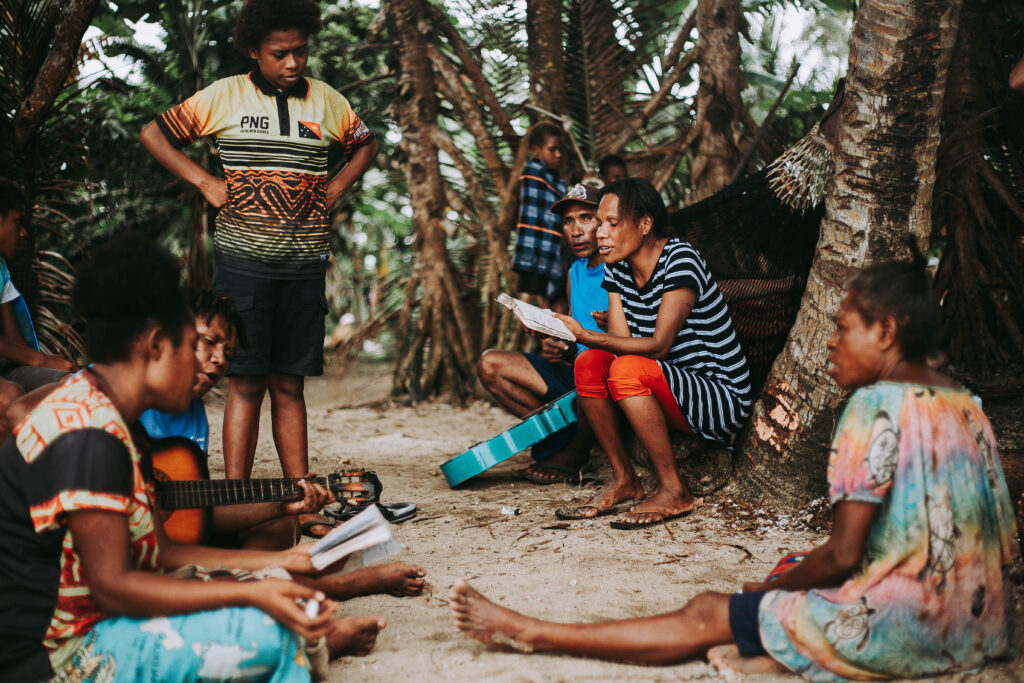“Have you thought about doing Oral Bible Translation?”
My friend asked me as we sat at a coffee shop.
I chuckled a little—because, no, I’d never thought about doing Bible translation work.
I had been sharing my heart for the unreached, displaced and exploited people groups in the world and how I wanted to not only document and capture their stories, but help bring holistic healing and a place of refuge for people.
“Help me understand why stepping into translation would have anything to do with what I was sharing,” I said a bit confused.
“I don’t really know, just was a thought that came to my mind,” she replied.
That same suggestion came up multiple more times in conversations with people throughout the week. So much so, it made me pause and seek the Lord.

From what I knew of the translation world, it would mean a lot more schooling, “mastering” a language—all in hopes that the Bible could be translated into that language in my lifetime.
I was disgruntled, because why another thing that seemed out of left-field? How could Oral Bible Translation (OBT) possibly connect to everything else that God had been leading me to with art and media, sports and fitness, medical?
“Trust My heart and My intentions,” is all that kept coming when I was praying into OBT.
I had to choose to set aside my preconceived notions and understanding, and just say “yes” to God’s heart and His leading.
Then I discovered the Oral Bible Translation School in Youth With A Mission (YWAM).
Something God highlighted to me before I ever thought about translation was about bringing restoration to people. And that in order to do that, it must be rooted in His Word, established upon the sure foundation of truth—to heal, to educate, to empower, to give voice. For the foundation of His house would be His Word!
As my classes began, I learned quickly how the OBT approach is based on holistic translation.
It’s about the whole person, the whole language, and the whole community to bring transformation through the Word of God.
When we talk about people groups who have never had the Bible in their language, much less heard about Jesus, there has to be a willingness to go low and go slow. We need to be a humble people who don’t come in with answers, but instead with compassionate hearts and surrendered hands.

The key within OBT? It’s relationship, it’s coming in as a learner, to seek understanding, and simply to become friends.
As John 13:35 says, “For they will know you are my disciples by the way that you love.”
I got to then see how beautiful it is to walk in friendship in translation while in Papua New Guinea (PNG).
Living, cooking, collecting firewood, staying up for hours to hear stories of their families, their history, and understand how God had drawn them to Himself even before the first missionaries came to them.
One day while we were cooking, one of my friends from PNG asked, “Why do you want to learn from us?
“Most missionaries when they come want to just teach us, which is good. But I don’t understand why you want to learn from us.”
I turned to her and said, “Because you know God in a different way than me, and if I think for a moment that I know more just because I grew up in a different culture and society it would be a lie…”
I told her that we cannot ignore the beauty, the knowledge that every culture carries, for everyone carries a different aspect of God that would be foolish for me to ignore and not learn from just because it’s different.
“You carry an expression of God that I would miss if I didn’t choose to learn from you all.”

“You mean, we don’t have to look or sound like you guys, but, we get to be free to express our praise to God the way He created us to?” she asked, wide-eyed.
“Yes, that’s exactly it.” I said with a smile.
I discovered that translation work is so much more than translating, it’s discipleship, its liberation, its honor.
For when we say we want to translate the Bible, in turn we are saying we want people to know Jesus, who is the Word (John 1:1), and in doing so He brings dignity back to people, placing a crown upon their heads. Like it says in Isaiah 62:3, “You shall be a crown of beauty in the hand of the LORD and a royal diadem in the hand of your God.”
All of it is from an overflow of relationship with God, where when we seek, we will find Him in every person, tribe, and tongue. Seeing a glimpse of people being bewildered, astonished and amazed when they get to hear the Word of God spoken in their language. Asking “How is it that we hear, each of us in his own native language” (Acts 2:8)?

Bible translation is a taste of what heaven will be like as every nation, tribe and tongue fully express their adoration in the full freedom God designed them to.
Here we are at the brink of a new wave, where we go forth as the Apostles first did sharing the “…the good news of great joy that is for all people” (Luke 2:10). It will look different, and it is not a one size fits all, it takes different skills, passions, and people to see this through.



